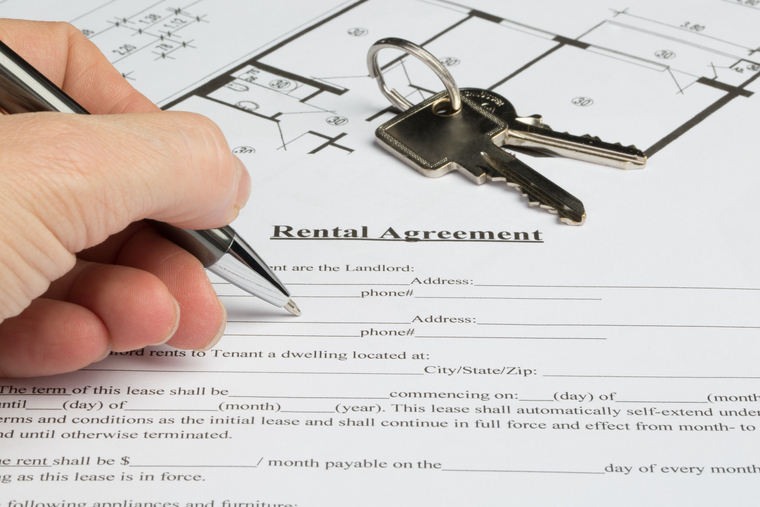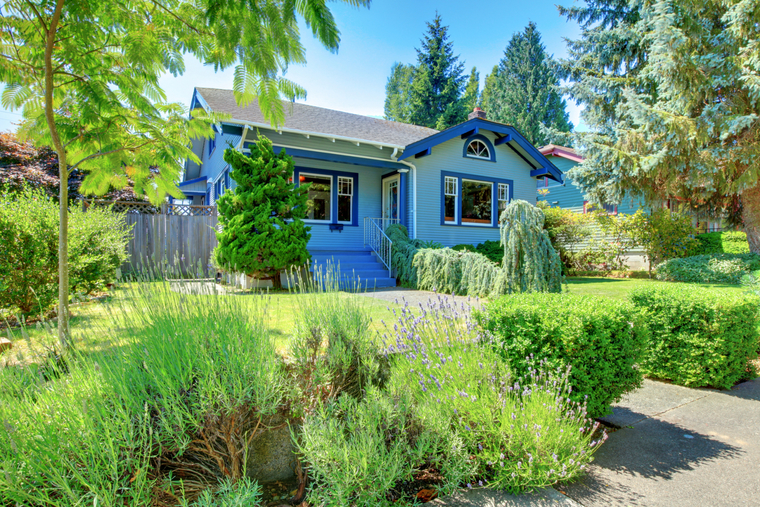Introducing the NEW Windermere.com


Around the halls of Windermere, we’ve decided that 2018 is the year to hit #refresh; it started with the launch of the refreshed Windermere brand earlier this year and today it continues with the unveiling of our refreshed website! The new Windermere.comis a result of a lot of research and input from our agents, franchise owners – and most importantly – consumers. As you can probably tell, we couldn’t be more excited! Let’s dig in.
Where we innovated:
Through the research process we discovered that over 85 percent of all traffic on our website occurs on our home page, search results, and property detail pages. This made it fairly easy for us to figure out what we wanted to focus on with the refresh. Plus, we heard from our regular site visitors that they felt those were the areas that needed the most improvement. Done, done, and done.
A much happier homepage:
We started with a total redesign of the Windermere.com homepage, which now better reflects the updated Windermere brand that we invested so much energy into earlier this year. The homepage is also now “location-aware” which means it will display listings that are geographically located closest to you. Because if you’re in Fort Collins, Colorado, you probably don’t want to be looking at listings in the suburbs of Boise. Catch our drift?
Mobile site, fast as lightning:
Next on the list to fix was our mobile site. We threw the proverbial baby out with the bathwater and started from scratch. The result is an ultra-fast, highly-optimized mobile site that we think might even offer a better user experience than our desktop site (although it’s next to impossible to pick which is better; please don’t make us do it).
Sexy search results:
OK, you probably wouldn’t normally describe search results as sexy, but it’s arguably one of the most important pages on our website, so we spent a lot of time here. What you see in your search results, and how those results are presented, has a major impact on your home search experience. We completely revamped how search results show up, as well as what you see when you click through to see a specific home. Is it the greatest search makeover of all time? Possibly.
Major eye candy:
As we all know, photos and videos are the beginning and end of everything these days, so we’ve placed even greater emphasis on those stunning images on our new property detail pages. We’ve also made it super easy for you to share listings that you love with your friends via social media, email, etc. because #sharingiscaring.
That’s it, go check it out:
Without further ado, we cordially invite you to check out our brand new website for yourselves by going to Windermere.com. If you’re someone who regularly uses our site, we hope you love it. If you’re someone who doesn’t typically use our site to search for homes, we hope you’ll give us a shot. If you feel like it’s completely on point, please let us know by emailing friend@windermere.com. If you don’t, we’d still love to hear from you! After all, any feedback is good feedback – but please, play nice.
Happy home searching!
How the Neighborhood Impacts a Home’s Value

Whether you’re buying or selling, accurately pricing a home requires professional assistance from someone who knows the neighborhood.
The “estimated” home prices you see posted online can be off by tens of thousands of dollars—not because they are dishonest, but because the computer programs generating these guesstimates don’t take into account the current condition of a house, the amenities that are included, the qualities of the surrounding neighborhood, and so much more.
A real estate agent’s appraisal will not only consider the selling prices of surrounding properties, as the online services do, but also take into consideration a host of other criteria. For instance, when it comes to assessing the surrounding neighborhood, the following factors can often significantly affect the market price of a home:
School quality
The quality of neighborhood schools has a dramatic impact on home price, whether buyers have school-age children or not. In the most recent study on the subject, researchers from the Federal Reserve Bank of St. Louis found that above-average public schools (those with math scores 4.6 percent better than the average) increased the value of nearby homes by 11 percent (or an average of $16,000) in the St. Louis area.
A park within walking distance
Parks are so important to families today that simply having one within a quarter mile can increase the value of a house by 10 percent, according to a new study from the University of Pennsylvania’s Wharton School.
Stores nearby
The impact that retail areas have on home values depends on the type of community. According to a study recently released by the Massachusetts Institute of Technology, homes in urban areas sell for six percent to eight percent more than average if they’re within a quarter mile of a retail cluster (shops and restaurants). However, in suburban communities, it’s the homes that are a mile from any retail centers that sell for the most (homes located closer than that actually sell for eight percent less than average).
Freeway access
Because we’re a car-oriented society, most people are willing to pay more to live within a couple miles of an on-ramp to a major highway or freeway, which saves gas and speeds commute times. However, if the home is located too close (within a half mile of the freeway), the associated noise and air pollution can push the price in the opposite direction.
Vacant lots in the vicinity
Being surrounded by vacant land can be a good thing in rural areas, but it’s usually a negative for urban homeowners. A recent Wharton School study found that higher concentrations of unmanaged vacant lots in an urban neighborhood drag down the values for surrounding homes by an average of 18 percent.
Proximity to nuisances and environmental hazards
Two recent studies (one from an Arizona assessor’s office, the other by the University of California Berkeley) show that homes located near a landfill or power plant usually sell for four to 10 percent less than more distant homes. The same can usually be said for homes located too close to manufacturing facilities—especially those that make lots of noise or produces noxious odors.
Neighborhood foreclosures
According to a recent study by the Massachusetts Institute of Technology, the value of a home decreases by one percent for every foreclosed home within 250 feet of it. Why? The lower sales prices of foreclosed homes can quickly drag down the neighborhood’s comparable prices. Plus, the owners of these properties usually don’t have the money or interest in maintaining them after they go into foreclosure, which can create an eyesore for all the other homes in the vicinity.
Percentage of homeowners
Are there more owners than renters living in the neighborhood? If so, property values are usually better than average. Homeowners tend to take better care of their property than renters or landlords, which improves the curb-appeal for the whole community.
Public services
Some communities have a wealth of quality public services available to them—including regular street cleanings, scheduled street repair, graffiti removal services, landscape maintenance, neighborhood beautification efforts, and more. Needless to say, homes lucky enough to be located in those areas typically command higher property valuations.
Home sellers can use these factors to justify a higher asking price. Buyers can use them to try and negotiate something lower. However, when it comes to attaching specific dollar amounts, that is something best left to your real estate agent, an objective professional with a deep understanding of the local market.
Perspectives: Buyer Fatigue

Buyer fatigue. It’s a very real thing and we’re seeing it in cities all up and down the West Coast. What’s causing it? Intensely competitive market conditions in which bidding wars and properties selling for significantly more than asking price are the norm. It’s tiring for buyers. It’s tiring for agents. And it’s emotionally draining when you continue to find, and then lose, the perfect home over and over again.
We recently received a letter from a buyer detailing their experience of bidding on and losing home after home. Eventually they were successful but they wanted us to know that they couldn’t have done it without their agent. Not just the winning offer, but the grueling process it took to get there. They felt that their agent provided the perfect balance of emotional support and professional expertise that they needed to stick with it and eventually find a great home.
For us, this really underscored the importance of having a well-trained agent who not only understands how to compete in a seller’s market, but also truly cares about their clients and the outcome. This market isn’t for the faint of heart, so to be successful you have to be determined yet patient, and you need an agent who will put together specific strategies to help you achieve your goals. It requires total transparency and, at times, brutal honesty.
We wish we could tell you that we’re going to return to a balanced market by the end of the year, but unfortunately that’s highly unlikely. So, if you’re already out there, stay strong. There’s a lot of pressure to overpay for homes right now, so be sure to consult with your agent about the best course of action for your situation. If you’re thinking about jumping in, we can’t stress enough how important it is to work with an agent who will help you successfully navigate the rough waters of this unpredictable housing market.
Investing in Rental Property: The Risks, Rewards, and Benefits of Owning Rental Property

One area of the real estate market that is thriving right now is rental property.
All indications suggest that the rental market will continue to improve because of low vacancy rates and rising rents. In fact, the demand for rentals is predicted to far exceed supply through 2016, with 4.5 million new renters expected to enter the market in the next five years.
What to consider before buying a rental
Being a landlord has its challenges. The recession took a toll on rental prices for a few years and any future economic downturns could do the same. Once the job market returns to normal, there’s a strong possibility that more people will choose to move from rentals into homes of their own. And the demand for rental properties could become over saturated at some point, resulting in an investment bubble of its own.
What’s more, while the income from a rental property can be significant, it can take at least five years before you’re making much more than what you need just to cover the mortgage and expenses. In other words, the return on your investment doesn’t happen overnight.
However, in the long run, if you select the right property, it could turn out to be one of your best investment decisions ever—especially since rental real estate provides more tax benefits than almost any other investment.
Tax deductions for the taking
One of the greatest things about owning rental properties is the fact that you’re able to deduct so many of the associated expenses, including a sizeable portion of your monthly mortgage payment.
The commissions and fees paid to obtain your mortgage are not deductible, but the mortgage interest you pay each month is, including any money you pay into an escrow account to cover taxes and insurance. Whatever your mortgage company reports as interest on your 1098 form at the end of each year can likely be deducted.
For example, you may be eligible to deduct credit card interest for goods and services used in a rental activity, repairs made to the building, travel related to your rental (local or long distance), expenses related to home office or workshop devoted to your rental, the wages of anyone you hire to work on the building, damages to your rental property, associated insurance premiums, and fees you pay for legal and professional services. However, as is the case with any transaction of this type, be sure to consult your attorney or accountant for detailed tax information.
What to look for
As with any real estate investment, the location of the property and its overall condition are both key. But with rental properties, there are some other, unique factors you’ll also want to consider.
Utilities
Look for a building with separate utilities (water, electric, and gas, etc.) for each rental unit. This will make it far easier to legally charge for the fair use of what can be a very costly monthly expense.
Competition
If your property is one of the few rentals in the neighborhood, there will be less competition for interested renters.
Transportation
Rentals that are near popular public transportation options and/or major freeways (without being so close that noise is an issue) are usually easier to rent—and demand more money.
Landscaping
Properties with small yards and fewer plantings are far easier and less expensive to manage.
Off-street parking
Not only is off-street parking a desirable feature (people with nice cars usually don’t like to park on the street), it’s also a requirement for rental properties in some communities.
How to start your search
Unlike homes, rental properties do not typically have a visible ‘for-sale’ sign standing out front (as landlords don’t want to irritate, bring attention to their current renters, or turn off any prospective renters). Therefore, if you are interested in a rental property, your best option is to schedule an appointment with your real estate agent/broker to discuss your investment goals and identify what opportunities currently exist in the market place.
New Features vs. Character

We are often asked, “Which is the better buy, a newer or older home?” Our answer: It all depends on your needs and personal preferences. We decided to put together a list of the six biggest differences between newer and older homes:
The neighborhood
Surprisingly, one of the biggest factors in choosing a new home isn’t the property itself, but rather the surrounding neighborhood. While new homes occasionally spring up in established communities, most are built in new developments. The settings are quite different, each with their own unique benefits.
Older neighborhoods often feature tree-lined streets; larger property lots; a wide array of architectural styles; easy walking access to mass transportation, restaurants and local shops; and more established relationships among neighbors.
New developments are better known for wider streets and quiet cul-de-sacs; controlled development; fewer aboveground utilities; more parks; and often newer public facilities (schools, libraries, pools, etc.). There are typically more children in newer communities, as well.
Consider your daily work commute, too. While not always true, older neighborhoods tend to be closer to major employment centers, mass transportation and multiple car routes (neighborhood arterials, highways and freeways).
Design and layout
If you like Victorian, Craftsman or Cape Cod style homes, it used to be that you would have to buy an older home from the appropriate era. But with new-home builders now offering modern takes on those classic designs, that’s no longer the case. There are even modern log homes available.
Have you given much thought to your floor plans? If you have your heart set on a family room, an entertainment kitchen, a home office and walk-in closets, you’ll likely want to buy a newer home—or plan to do some heavy remodeling of an older home. Unless they’ve already been remodeled, most older homes feature more basic layouts.
If you have a specific home-décor style in mind, you’ll want to take that into consideration, as well. Professional designers say it’s best if the style and era of your furnishings match the style and era of your house. But if you are willing to adapt, then the options are wide open.
Materials and craftsmanship
Homes built before material and labor costs spiked in the late 1950’s have a reputation for higher-grade lumber and old-world craftsmanship (hardwood floors, old-growth timber supports, ornate siding, artistic molding, etc.).
However, newer homes have the benefit of modern materials and more advanced building codes (copper or polyurethane plumbing, better insulation, double-pane windows, modern electrical wiring, earthquake/ windstorm supports, etc.).
Current condition
The condition of a home for sale is always a top consideration for any buyer. However, age is a factor here, as well. For example, if the exterior of a newer home needs repainting, it’s a relatively easy task to determine the cost. But if it’s a home built before the 1970s, you have to also consider the fact that the underlying paint is most likely lead based, and that the wood siding may have rot or other structural issues that need to be addressed before it can be recoated.
On the flip side, the mechanicals in older homes (lights, heating systems, sump pump, etc.) tend to be better built and last longer.
Outdoor space
One of the great things about older homes is that they usually come with mature tress and bushes already in place. Buyers of new homes may have to wait years for ornamental trees, fruit trees, roses, ferns, cacti and other long-term vegetation to fill in a yard, create shade, provide privacy, and develop into an inviting outdoor space. However, maybe you’re one of the many homeowners who prefer the wide-open, low-maintenance benefits of a lightly planted yard.
Car considerations
Like it or not, most of us are extremely dependent on our cars for daily transportation. And here again, you’ll find a big difference between newer and older homes. Newer homes almost always feature ample off-street parking: usually a two-car garage and a wide driveway. An older home, depending on just how old it is, may not offer a garage—and if it does, there’s often only enough space for one car. For people who don’t feel comfortable leaving their car on the street, this alone can be a determining factor.
Finalizing your decision
While the differences between older and newer homes are striking, there’s certainly no right or wrong answer. It is a matter of personal taste, and what is available in your desired area. To quickly determine which direction your taste trends, use the information above to make a list of your most desired features, then categorize those according to the type of house in which they’re most likely to be found. The results can often be telling.
If you have questions about newer versus older homes, or are looking for an agent in your area we have professionals that can help you. Contact us here.
Six Key Factors That Affect the Sales Price of Your Home

Pricing a home for sale is not nearly as simple as most people think. You can’t base the price on what the house down the street sold for. You can’t depend on tax assessments. Even automatic valuation methods (AVMs), while useful for a rough estimate of value, are unreliable for purposes of pricing a home for sale.
AVMs, like those used by Zillow and Eppraisal, have been used for many years by banks for appraisal purposes. They are derived from algorithms based on past sales. But producers of AVMs agree that they are not accurate indicators of home value. For example, Zillow.com states, “Our data sources may be incomplete or incorrect; also, we have not physically inspected a specific home. Remember, the Zestimate is a starting point and does not consider all the market intricacies that can determine the actual price a house will sell for. It is not an appraisal.”
So what does Zillow recommend sellers do instead? The same thing the real estate industry has been advising for decades: Ask a real estate agent who knows your neighborhood to provide you with a comparative market analysis. To accomplish that, I typically consider the following factors—plus others, depending on the house:
Location
The location of your home will have the biggest impact on how much it can sell for. Identical homes located just blocks apart can fetch significantly different prices based on location-specific conditions unique to each, including: traffic, freeway-access, noise, crime, sun exposure, views, parking, neighboring homes, vacant lots, foreclosures, the number of surrounding rentals, access to quality schools, parks, shops, restaurants and more.
Recommendation: Be willing to price your house for less if it’s located in a less desirable area or near a neighborhood nuisance.
Market
Another major factor that also can’t be controlled is your local housing market (which could be quite different from the national, state or city housing markets). If there are few other homes on the market in your local area (a situation known as a “sellers market”), you may be able to set a higher price. However, if there’s a surplus of homes like yours for sale (a “buyer’s market”), your pricing will also reflect that.
Recommendation: If it’s a buyer’s market and you can delay selling your home until things change, you should consider doing so. If you can’t wait, be willing to price your home extremely competitively, especially if you are in a hurry to sell.
Condition
The majority of buyers are not looking to purchase fixer-uppers, which is why any deferred maintenance and repair issues can also significantly impact the selling price of your home. When your home’s condition is different than the average condition of homes in your location, AVMs tend to produce the widest range of error.
Recommendation: Hire a professional home inspector to provide you with a full, written report of everything that needs upgrading, maintenance or repair, then work with your real estate agent to prioritize the list and decide what items are worth completing before the property is listed for sale, and what should be addressed through a lower list price. Also, some defects are best addressed during negotiations with buyers.
Widespread appeal
If you want to sell your home quickly and for the most money, you have to make it as appealing as possible to the largest pool of prospective buyers. The more universally attractive it is, the greater the interest and the faster competing offers will come.
Recommendation:
Hire a professional home stager (not a decorator) to temporarily stage the interior of your home. Also spend time making the exterior look its best: address any peeling paint, make sure the front door/ door hardware is attractive, prune bushes and trees, remove old play equipment and outdoor structures, etc.
Compare homes
The only neighboring homes that should be used to estimate the value of your home are those that have been carefully selected by a real estate professional with special training, access to all sales records, and in-depth knowledge of the neighborhood.
Recommendation: If you’re considering selling your home, ask your real estate agent to recommend a professional appraiser.
Searchability
When working with a prospective buyer, most real estate agents will search the available inventory only for the homes priced at (or less than) their client’s maximum, which is typically a round number. If you home is priced slightly above or below that amount (e.g., $510,000 or $495,000), it will appear in fewer buyer searches.
Recommendation: Be willing to adjust your selling price to maximize visibility.
Periodic price adjustments
Pricing a home isn’t a set-it-and-forget-it proposal. As with any strategy, you need to be prepared to adapt to fast-changing market conditions, new competition, a lack of offers and other outside factors.
Recommendation: After listing your house, be ready to adjust your asking price, if necessary.
A Quick Guide to Understanding Real Estate Designations

What do those letters and acronyms mean at the end of your real estate agent’s name? We’re here to answer that question and explain why it might matter to you. Like other professionals, real estate agents have the ability to specialize in certain areas of the business by earning designations. Those acronyms signify that they have achieved a specific designation through extensive training and education. In simple terms, designations enable agents to increase their skills, proficiency, and knowledge in various real estate sectors. They can also provide agents with access to members-only marketing tools and resources which can be an added benefit to their clients.
So why should real estate designations matter to you? Depending on what your specific real estate needs are, certain designations might mean more to you than others. For example, if you are in need of a real estate agent who can help you or your loved ones transition to a senior living facility, you may want to work with a Senior Real Estate Specialist (SRES), because they are trained to understand the unique needs of seniors and their families in this type of situation. Or, perhaps you’re selling your LEED-certified homeand you want an agent who specializes in marketing these types of properties, then you may want to work with a Certified Green Real Estate Professional (CG-REP).
The National Association of REALTORS® offers the largest number of professional designations, which are designed to provide real estate agents with specialized training in a variety of areas. Here is a list of those designations and how they benefit real estate consumers.
Accredited Staging Professional (ASP): By increasing a home’s appeal to a higher number of buyers, home staging is commonly considered one of the best ways to sell a property more swiftly and for more money. Agents with an ASP designation understand the art of home staging and use special marketing techniques to increase the market value of a home.
Senior Real Estate Specialist (SRES): If you are considering retiring, downsizing or are trying to help an aging loved one transition to an assisted living facility, a SRES trained REALTOR is qualified to help support clients over the age of fifty with lifestyle transitions and major financial decisions. This includes knowing what to look for if you prefer to age in place, finding the resources to support a move from movers to financial advisors, and more.
NAR Green Designation (GREEN): If you are looking to buy or sell a LEED Certified home, a GREEN REALTOR will have the expertise to help you. They are trained in sustainable and earth-friendly building trends, energy efficiency, and more.
Accredited Buyers Representative (ABR): If you are a first time homebuyer you may want to find an ABR designated agent. They are specially trained to work with buyers through every step of the home-buyer process from mortgage to closing.
Accredited Land Consultant (ALC): Land experts have expert knowledge and experience in land auctioning, leasing, development, farm management, land investment analysis, and tax deferment. This type of designation is not needed for a general home purchase, but if you are looking at investment, development, or farming properties, an ALC can help.
Certified Commercial Investment Member (CCIM): Purchasing or leasing space for your business is different than finding a home for yourself or investment property. If you need a commercial space, a certified commercial agent can help you locate this type of property and negotiate the intricacies of the contracts.
Certified International Property Specialists (CIPS): International real estate can differ greatly from domestic transactions. If you are looking to purchase a home abroad, consider working with an agent who has their CIPS and specializes in international real estate. They can provide tools for understanding the international process, access to a global referral network, and additional international resources.
Certified Property Managers (CMP): Managing a rental property can be a complicated, time-consuming process. There are specific laws you have to follow, resident screenings, 24 hour maintenance issues, and more. A CMP is specially trained to manage your residential or commercial property on your behalf.
Certified Real Estate Brokerage Manager (CRB): Managing a real estate business involves much more than overseeing an office with staff, marketing, and other resource needs. CRBs go through certification and extensive training for supervising a real estate brokerage, with essential business development and management requirements.
Certified Residential Specialist (CRS): The prestigious CRS designation is awarded to experienced REALTORS who have completed advanced professional training and demonstrated outstanding professional achievement in residential real estate. This designation signifies one of the highest levels of success a REALTOR can achieve.
Seller Representative Specialist (SRS): Sometimes referred to as a “listing agent”, there are agents who specialize in working specifically with sellers. These agents have special training in all areas of the home selling process, providing increased professional standards and marketing expertise.
Certifications:
Military Relocation Professional Certificate (MRP): If you are a military service member or are relocating on behalf of the military, an MRP is specifically trained to address your relocation needs. They can help you navigate through the financial process because they are aware of the benefits available to service members and can address the unique relocation needs of military clients.
Resort & Second-Home Property Specialist Certification (RSPS): If you have a destination property, consider working with a RSPS certified agent to manage the buying, selling, or management process. They have training specific to managing investment, retirement, resort, and vacation destination properties.
Short Sale & Foreclosure Certification (SFR®): Short sales are different than typical home sales because they deal directly with financial institutions. SRF certified agents are experienced at negotiating these types of transactions and are trained to work with finance, tax and legal professionals on behalf of distressed sellers.
Go here for a complete list of designations: http://www.realtor.org/designations-and-certifications
Selling your home: A step-by-step approach

Whether you’re starting a family, moving for your job, getting ready to retire or embarking on a new chapter in your life, when your home no longer suits your current situation, it’s time to think about selling it. Although this can be a bit complicated, with the help of your agent, you can minimize the hassles, get the best possible price, and shorten the distance between “For Sale” and “Sold”.
Price it right
If you want to get the best possible price for your home and minimize the time it stays on market, you need to price it correctly from the beginning. Your agent can give you a clear picture of your particular market and can provide you with a comparative market analysis (CMA). A CMA contains detailed information on comparable homes in your area, including square footage, date built, number of bedrooms, lot size and more. It lists pending sales and houses sold in your area in the past six months, along with their actual sale prices.
By comparing your home to similar homes in your neighborhood and reviewing their list prices and actual selling prices, your agent can help you arrive at a fact-based assessment of your home’s market price.
Prepping your house for sale
You want to make a positive first impression when you list your home for sale. Here are some tips on how to enhance your home’s best features:
Work on your curb appeal
Get rid of moss on your roof. Power wash your front walk, porch, deck and patio. Mow the lawn, trim the hedges, weed the flowerbeds and add spots of color with container plants. Clean all the windows inside and out and repair them if they don’t open and close easily.
Refresh, repair and repaint
This goes for interiors and exteriors. If you see peeling paint, add a fresh coat. If your living room is bright lime green, consider painting it a more neutral shade. Make necessary repairs. You don’t want to turn off a buyer with a dripping faucet, a broken doorbell, a clogged downspout or a cracked windowpane.
Deep-clean, from floor to ceiling
Clean rugs, drapes and blinds and steam-clean carpeting. Get rid of any stains or odors. Make sure kitchen appliances, cupboards and counters are spotless and that bathrooms shine.
Declutter and depersonalize
Clean, light-filled, expansive rooms sell houses. So be sure to downsize clutter everywhere in your home, including cupboards, closets and counters. You might also consider storing some furniture or personal items to make rooms look more spacious. Take advantage of views and natural light by keeping drapes and blinds open.
Make an impact on the market
If you want to sell your home, you need to go where the buyers are, and today they’re on the Internet. According to the National Association of REALTORS®, in 2012 90 percent of homebuyers used the Internet as an information source, and for 41 percent of homebuyers it was the first step in the home-buying process.
By working with your agent, you can list your home on Windermere.com and other relevant websites. He or she will put together a listing with attractive photos, an appealing description and all the information a potential buyer needs. Your agent will also market your house, which may include advertising, direct mail and open houses.
Show your house
After you’ve taken care of all the repairs and cleaning tasks outlined above, your home is ready for its close-up: an open house. It’s actually best for you and your family to leave when potential buyers are present so they can ask your agent questions. But before you go, you might want to:
· Take your pets with you
· Open the shades and turn on the lights
· Light a fire in the gas fireplace
· Bake cookies
· Keep money, valuables and prescription drugs out of sight
Be flexible in negotiating
If you get offers below your asking price, there are a number of strategies you can try in your counteroffer. You could ask for full price and throw in major appliances that were not originally included in the asking price, offer to pay some of the buyer’s fees, or pay for the inspection. You could also counter with a lower price and not include the appliances. If you receive multiple offers, you can simply make a full-price counter.
Your agent can suggest other strategies as well and help you negotiate the final price.
If your house doesn’t sell or you’ve received only low-ball offers, ask your agent to find out what these prospective buyers are saying about your house. It might reveal something you can consider changing to make your house more appealing in the future.
Breeze through your inspection
When a buyer makes an offer on your home, it’s usually contingent on a professional inspection. A standard inspection includes heating and cooling, interior plumbing and electrical systems; the roof, attic and visible insulation; walls, ceilings, floors, windows and doors; and the foundation, basement and visible structure. The inspector will be looking for cracks in cement walls, water stains and wood rot.
You can always opt for having an inspection done prior to putting your house on the market, so you can address any potential problems in advance. Your agent can give you several recommendations for qualified inspectors in your area.
Close with confidence
Whether this is your first time or your tenth, your agent can help guide you though the complex process of selling a home. Moreover, he or she can answer any questions you may have about legal documents, settlement costs and the status of your sale.
Your agent’s expertise, resources and extensive network also work for you when you’re buying your next house. Even if you’re moving out of the area, your agent can refer you to a professional agent in your new community.
If you have questions about the buying or selling process, or are looking for an agent in your area, we have professionals that can help you. Contact us here.
How to Choose the Right Home

As the market starts heating up and real estate becomes a popular dinner party topic again, it’s easy to get so caught up in the fever of searching and offers that we forget why we were buying a home in the first place. When you’re hearing about “inventory shortages” and “bidding wars” it’s important not to fall into the trap of settling, buying for the wrong reasons, or even overspending.
When is the “Right Time to Buy”?
I constantly see information out there telling buyers and sellers that it is the “right time” or the “wrong time” to buy or sell a home. Of course you should take things like rising interest rates or rising or falling prices into consideration, but the most important thing to ask yourself is, “Is it the right time for me?” Are you ready to stay in one place for a while? Are you feeling like your employment position is stable? How about your relationship? If you’re barely making ends meet with a job you hate and your relationship with your partner is on the rocks, it’s probably not the time to buy, no matter what interest rates are doing. Having enough money to comfortably afford your home is more important than buying when everyone else is.
What are your values?
Why do you want to buy a house, anyways? Do you imagine yourself spending your weekends working in your yard every weekend? Is your idea of fun tearing apart a bathroom and putting it back together piece by piece? Or are you more interested in a lifestyle, living close to your work and walking to the grocery store? If you love going out with your friends or traveling for long periods, buying a house with extensive landscaping or an endless list of things needing to be remodeled and upgraded is probably not a good fit. Know what kind of life you want to live in your home BEFORE you find a place, and stay true to that as you search.
Find a REALTOR who gets you.
When you’re looking for an agent to help you find a home, keep looking till you find someone you like and trust. Buying a home can be hugely stressful, and being able to have open and honest conversations with an agent who gets you will make the whole process much easier.
Everyone is happy that the real estate market is in recovery and buying a house is an amazing experience. Just make sure you know what you want your home to be FOR YOU and stay true to your own personal American Dream.
 Facebook
Facebook
 Twitter
Twitter
 Pinterest
Pinterest
 Copy Link
Copy Link









